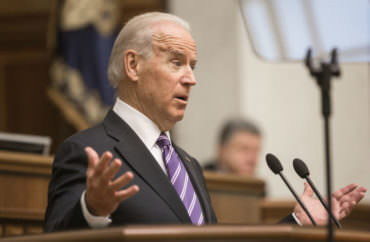On September 22, 2017, the Office for Civil Rights announced its withdrawal of the flawed 2011 Dear Colleague Letter. This unlawfully issued policy has been documented to have disastrous effects for students, faculty, and university administrators. [1] Fourteen months later, the Department of Education released its proposed Title IX regulations.
In a country grounded on democratic principles, all parties are certainly entitled to debate a proposed rule. Almost everyone seemed to be playing nice in the sandbox. But the National Women’s Law Center (NWLC) and their consortium of supporters devised and executed a plot to delay, delay, and delay.
First, in January 2018, NWLC filed suit against the Trump Administration to block the “new and extreme Title IX policy”, alleging it was unlawfully based on discriminatory stereotypes about women and girls as survivors of sexual violence. [2] The court eventually dismissed the lawsuit.[3]
Second, during the Notice and Comment period that began November 29, 2018, the NWLC requested Secretary DeVos to extend the “Notice and Comment” period for 60 more days because, in their words, “The proposed 60-day period comes in the midst of the holiday season. This is a particularly busy time for students, who are juggling final exams, preparations for winter break, and traveling home for the holidays. Teachers and school administrators are similarly overburdened.” [4]
That’s right, we don’t want to inconvenience students’ holiday shopping plans, do we?
The Department of Education prudently rejected the NWLC request.
By the end of January 2019, the Department received over 100,000 comments [5], and according to their website, plenty of those comments came from the NWLC who told Betsy DeVos to “keep her hands off Title IX”. [6] NPR radio revealed, “Survivors’ advocates especially have been running these big campaigns on social media and hosting comment-writing events, especially on college campuses.” [7]
Wondering who organized these “big campaigns”? Read on….
Next came the opportunity for final public commentary on the regulation to the Office of Management and Budget (OMB), in which persons can meet in person or on the phone with OMB officials to share any lingering concerns. The first meeting was held November 13, 2019. [8] Normally this step takes a couple days, certainly less than a week. But this time, the process stretched out over months, recently ending March 27.
In an Instagram video posted on April 3, Tulane University Title IX coordinator, Meredith Smith, spilled the beans. She revealed that the National Women’s Law Center orchestrated a strategy with various victim rights groups to request a seemingly endless string of meetings with the OMB, with the objective of delaying the release of the regulations. [9]
Smith explained: “So there was this delay strategy happening. We would hear that the Department of Education was about to release the regulations and then the National Women’s Law Center and all these other groups would parachute in and get more and more meetings on the calendar which push [the release date] back.”
The goal was to push the release date of the regulations to after the November 3 presidential election. Front-runner Democratic presidential candidate, Joe Biden, has vowed to restore the Obama era 2011 Dear Colleague letter guidance [10].
Even more recently the NWLC used the corona virus pandemic as an excuse, claiming “Now is hardly the right time to push forward with this fundamentally flawed rule.” [11]
The NWLC has utilized multiple tactics from their bag of tricks to strategically attempt to delay the release of the new regulations grounded in fairness and due process for now. And now, the cat is out of the bag!
Citations:
[3] https://www.courthousenews.com/wp-content/uploads/2019/11/DOESexAssaultGuidance-JUDGMENT.pdf
[4] https://nwlc.org/resources/nwlc-requests-dept-of-education-to-extend-title-ix-nprm-comment-period/
[6]https://nwlc.org/blog/nwlc-submits-comment-telling-betsy-devos-to-keep-her-handsoffix/
[7] https://www.npr.org/2019/01/30/690102168/litigation-is-likely-for-new-title-ix-guidelines
[8]https://www.reginfo.gov/public/do/eom12866SearchResults?view=yes&pagenum=34
[9] https://www.instagram.com/tv/B-hgmk0nRUz/?igshid=9tsk5uaj0e9m


 Unlike ‘wall-to-wall coverage for Brett Kavanaugh, Donald Trump’
Unlike ‘wall-to-wall coverage for Brett Kavanaugh, Donald Trump’